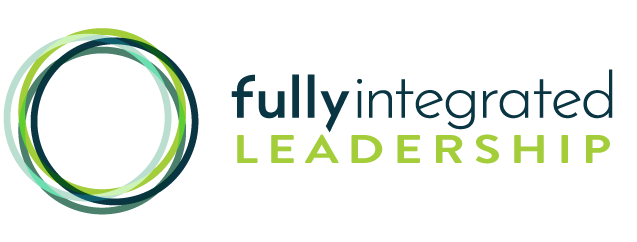individualcoaching
Individuals in Unison Make a Team
Working with individuals sits at the core of the Fully Integrated Leadership approach. We train leaders to master new skills to thrive in a VUCA world.
The Three Phases of Individual Coaching
A three month engagement where we get to know one another and you get to know yourself through multiple “lenses”. This phase includes 2-3 assessments (the Enneagram self-awareness assessment, the Leadership Decision-Making Assessment, and possibly the Leadership Self-Understanding Assessment), a 360 peer review with 8-10 colleagues, acquaintances, and bi-weekly 1 hour coaching sessions. At the end of this three month phase, you will get a report that combines together all of the assessment recommendations, my own assessment of you as a leader, and a road map of learning/development for you to follow if you want to go the self-guided route.
in this phase, we take all that was compiled during the assessment phase and develop new skills to build your leadership acumen. This includes bi-weekly coaching calls and custom-designed skill building activities to be completed between coaching calls. This phase typically lasts between 9 and 12 months.
We again conduct one or two assessments to show measurable growth in the necessary skill areas, and we develop a plan to sustain these skills in your day-to-day life. Coaching calls are less frequent in this phase (typically one per month).
teamcoaching
Collaboration and teamwork are the keys to success
In a VUCA world, collaboration and teamwork are keys to success. We work with teams to unlock their true potential and help create alignment towards a shared vision, a common set of metrics, and a plan of action to execute. Learn more then leads to the following information:
The Focus of Team Coaching
Trust has been identified as the number one predictor of a team’s success, yet few teams invest the time and money to ensure they have it and sustain it. At Fully Integrated, we use the Enneagram as a tool to understand ourselves as individuals, get to know others, and diagnose why we make decisions, deal with conflict, and communicate with each other the way we do.
One of the most important things we do as a team is make decisions, but how clear are we about how decisions are made? What tools are there to make collaborative decisions? We use the Leadership Decision-Making Assessment to understand our individual and collective skills in key decision-making areas, develop individual and collective learning to improve in the needed skill areas, and discuss as a team how to clarify decision-making procedures in the future.
Once trust has been established, it is important for all team members to be aligned around a common vision of the future they are trying to create, an honest assessment of where we are today, and a plan for how to move from current reality to future vision. At Fully Integrated, we facilitate conversations among teams to ensure alignment is in place, clarify the plan of action, and build metrics to show measurable progress towards goals.
Organizational coaching
Organizations Operate at the speed of trust
Organizations operate at the speed of trust. This is one of our operating philosophies at Fully Integrated. We work at the organizational level to ensure there is a commitment to fostering an organizational culture that supports the people, strategies, and goals that allow the organization to flourish.
Fostering an organizational culture
Planning in a Volatile, Uncertain, Complex, and Ambiguous world requires a different conversation than most traditional strategic planning consultants can facilitate. How do you create a strategic plan when things tend to change daily? How do you get various stakeholders aligned and moving in the same direction? How do you adjust when things do change, and how do you do this without losing momentum? At Fully Integrated, we use a “Systems Thinking” approach to facilitate strategic planning conversations to allow for enough structure to get stakeholders aligned while also allowing for the inevitable emergent ideas that will come up as the world changes.
“Culture eats strategy for breakfast.” This quote from organizational consultant Peter Drucker is a guiding force for how we approach organizational consulting. Culture is the combination of people’s daily experiences that foster individual and collective beliefs that lead to actions that ultimately lead to the results. We conduct a thorough culture analysis and work with organizational leadership to institute a culture that will get them the results they want to achieve.
